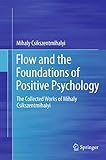March 14,2013
In the past few thousand years—a mere split second in evolutionary time—humanity has achieved incredible advances in the differentiation of consciousness. We have developed a realization that mankind is separate from other forms of life. We have conceived of individual human beings as separate from one another. We have invented abstraction and analysis—the ability to separate dimensions of objects and processes from each other, such as the velocity of a falling object from its weight and its mass. It is this differentiation that has produced science, technology, and the unprecedented power of mankind to build up and to destroy its environment.
But complexity consists of integration as well as differentiation. The task of the next decades and centuries is to realize this under-developed component of the mind. Just as we have learned to separate ourselves from each other and from the environment, we now need to learn how to reunite ourselves with other entities around us without losing our hard-won individuality. The most promising faith for the future might be based on the realization that the entire universe is a system related by common laws and that it makes no sense to impose our dreams and desires on nature without taking them into account. Recognizing the limitations of human will, accepting a cooperative rather than a ruling role in the universe, we should feel the relief of the exile who is finally returning home. The problem of meaning will then be resolved as the individual’s purpose merges with the universal flow.
March 12,2013
But to change all existence into a flow experience, it is not sufficient to learn merely how to control moment-by-moment states of consciousness. It is also necessary to have an overall context of goals for the events of everyday life to make sense. ---To create harmony in whatever one does is the last task that the flow theory presents to those who wish to attain optimal experience; it is a task that involves transforming the entirety of life into a single flow activity, with unified goals that provide constant purpose.
March 11,2013
The “autotelic self” is one that easily translates potential threats into enjoyable challenges, and therefore maintains its inner harmony. A person who is never bored, seldom anxious, involved with what goes on, and in flow most of the time may be said to have an autotelic self.
The term literally means “a self that has self-contained goals,” and it reflects the idea that such an individual has relatively few goals that do not originate from within the self. For most people, goals are shaped directly by biological needs and social conventions, and therefore their origin is outside the self.
March 9, 2013
The “battle” is not really against the self, but against the entropy that brings disorder to consciousness. It is really a battle for the self; it is a struggle for establishing control over attention. The struggle does not necessarily have to be physical, as in the case of the climber. But anyone who has experienced flow knows that the deep enjoyment it provides requires an equal degree of disciplined concentration.
March 8, 2013
The most important step in emancipating oneself from social controls is the ability to find rewards in the events of each moment. If a person learns to enjoy and find meaning in the ongoing stream of experience, in the process of living itself, the burden of social controls automatically falls from one’s shoulders. Power returns to the person when rewards are no longer relegated to outside forces.
March 5, 2013
Information enters consciousness either because we intend to focus attention on it or as a result of attentional habits based on biological or social instructions.
All these complex mental operations must be completed in a few seconds, sometimes in a fraction of a second. While forming such a judgment seems to be a lightning-fast reaction, it does take place in real time. And it does not happen automatically: there is a distinct process that makes such reactions possible, a process called attention.
Despite its great powers, attention cannot step beyond the limits already described. It cannot notice or hold in focus more information than can be processed simultaneously. Retrieving information from memory storage and bringing it into the focus of awareness, comparing information, evaluating, deciding—all make demands on the mind’s limited processing capacity.
Some people learn to use this priceless resource efficiently, while others waste it. The mark of a person who is in control of consciousness is the ability to focus attention at will, to be oblivious to distractions, to concentrate for as long as it takes to achieve a goal, and not longer. And the person who can do this usually enjoys the normal course of everyday life.
 本棚登録 : 4人
本棚登録 : 4人
 感想 : 1件
感想 : 1件































